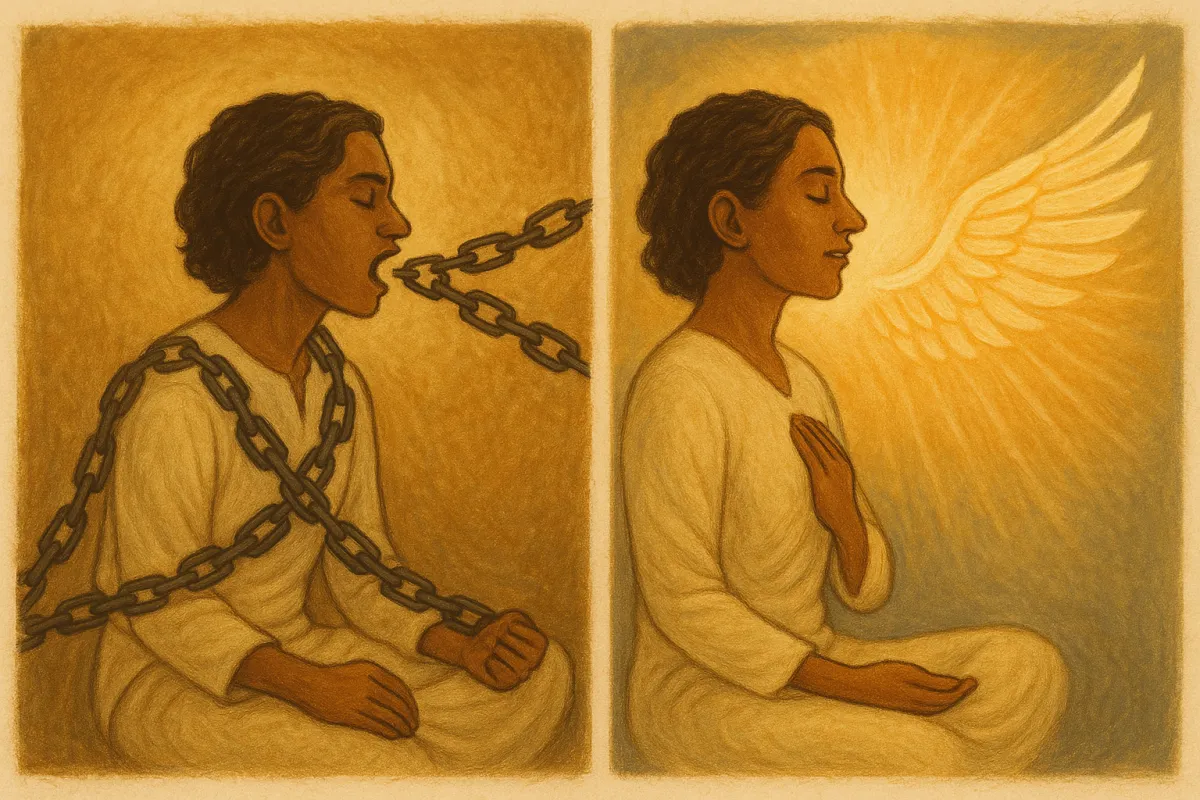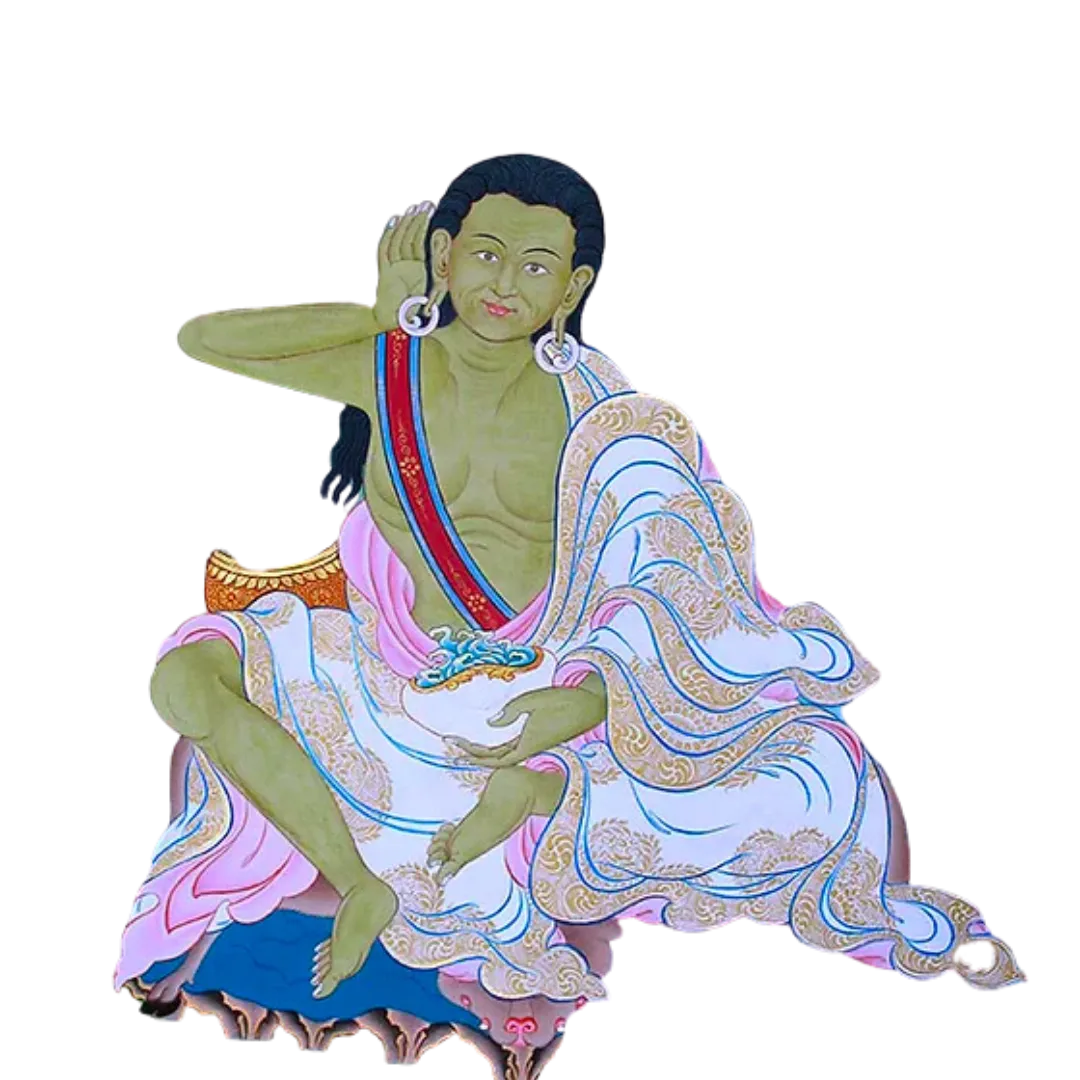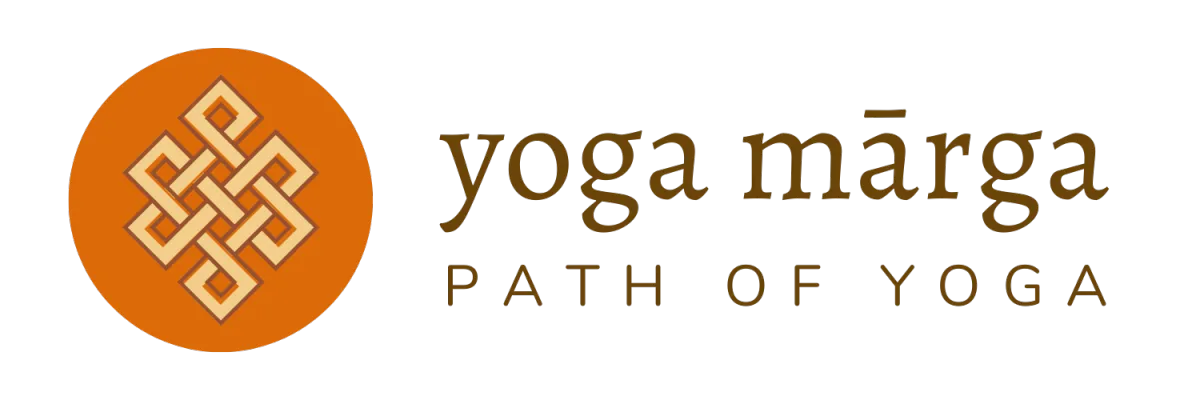Yoga Mārga Blog
Weekly Resources for Yoga Instructors, Wellness Professionals, and Healers.

The Two Words That Are Sabotaging Your Life
"Your body doesn't know the difference between truth and fiction. It just responds to the energy of your words."
"I can't afford that retreat."
"I can't make time for meditation."
"I can't have difficult conversations."
Stop right there.
Your body just responded to those words. Notice what happened to your shoulders, your chest, your energy. Did you feel defeated? Powerless? Like doors were slamming shut?
That's because you're not just speaking—you're casting spells.
The Satellite Dish in Your Backyard
Last week, Gabriel and I were giving a tour of our retreat property when our guest suddenly pointed and asked, "What's that giant satellite dish?"
We looked. We'd never seen it before.
A massive satellite dish. In our own backyard. Invisible to us despite walking past it countless times.
This is the perfect metaphor for unconscious language patterns. We think we're aware, evolved, awake—but we're missing huge things happening right in front of us.
Including the way we're programming our reality with every single word.
The Lie You Tell 20 Times a Day
"I can't" is almost always a lie.
Not an intentional deception, but a spiritual bypassing of your own power. Because here's what's really happening:
"I can't go to yoga class" actually means "I'm not willing to prioritize my practice."
"I can't afford the course" actually means "I'm not willing to invest in my growth."
"I can't have that conversation" actually means "I'm not willing to be uncomfortable."
Feel the difference in your body. "I can't" creates victim consciousness—powerless, defeated, at the mercy of circumstances. "I'm not willing" creates choice consciousness—empowered, honest, responsible.
Why We Choose the Lie
"I can't" feels nicer, doesn't it? More socially acceptable. It implies you're a good person who would help if only you could.
"I'm not willing" feels harsh. It requires you to own your choices instead of hiding behind circumstances.
But here's the shadow: every time you say "I can't," you're training your nervous system to believe you have no power.
Your body doesn't know the difference between truth and fiction. It just responds to the energy of your words.
The Immediate Karma of Language
In our tradition, karma isn't some distant consequence—it's the feeling in your heart right now.
Say "I have to go to work" and notice: anxiety, heavy shoulders, resistance.
Say "I get to go to work" and notice: lightness, possibility, gratitude.
This is immediate karma. You're not waiting for the universe to respond—your body is responding in real time to the spells you're casting.
The Spelling of Spells
"In the beginning was the word," teaches ancient wisdom. You, as part of the ultimate source, create your life with your words.
Words are energy. They cast spells. Why do you think it's called "spelling"?
Every "I can't" is a spell of limitation.
Every "I have to" is a spell of force.
Every "I should" is a spell of guilt.
Every "I get to" is a spell of possibility.
What reality are you spelling into existence?
The Practice of Conscious Language
This isn't about positive thinking or toxic spiritual bypassing. It's about radical honesty with yourself.
Start catching "I can't" in real time. Pause. Ask: "Is this actually true, or am I avoiding something?"
Most of the time, you'll discover choice where you thought there was none.
"I can't meditate for 20 minutes" becomes "I'm not willing to sit still for 20 minutes right now."
Suddenly, you're empowered. You have agency. You might even discover you're more willing than you thought.
You Need Witnesses for This Work
Just like Gabriel and I couldn't see our own satellite dish, you can't catch your unconscious language patterns alone.
You need people who love you enough to reflect: "I notice you say 'I can't' a lot. What if you tried 'I'm not willing' instead?"
You need a sangha where conscious language is practiced, where words are treated as sacred, where your speech patterns are seen as spiritual curriculum.
The Spell You're Ready to Cast
Right now, think of something you've been saying "I can't" about.
Feel that defeated energy in your body.
Now try: "I'm not willing to _____ right now."
Notice the shift. Feel your power returning.
This is how you reclaim your creative authority. One honest word at a time.
Ready to practice conscious language with a community that sees your words as sacred? Join our weekly sangha in the Yoga Mārga Skool—where we treat speech as spiritual practice and support each other in casting spells of empowerment.
Because the most profound spiritual practice might just be telling the truth about what you're actually willing to do.

Escondido, CA
Tampa Bay, FL
Between two thoughts,
there is Buddha.
- Milarepa
Milarepa (1052-1135 AD), a Tibetan yogi and poet, was a man who turned the trajectory of his life from misdeed to enlightenment, reminding us of the enduring potential of the human spirit.

